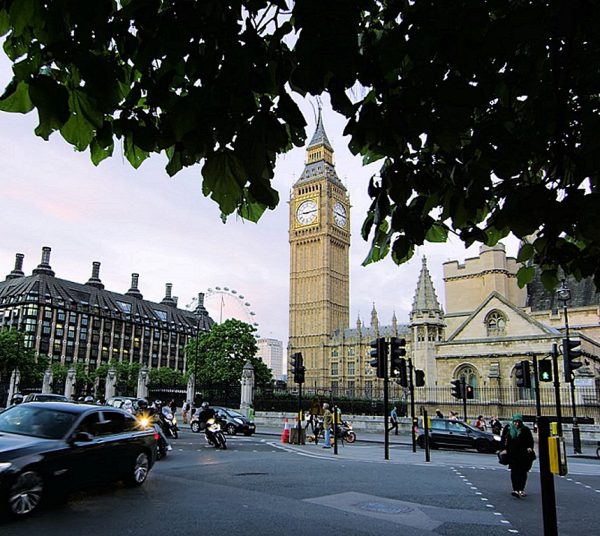BT Predicts Gigabit Broadband for All UK by 2027 with £9bn in Cuts

The CEO of BT Group, Philip Jansen, has warned MPs that at the current pace it will take until 2033 to achieve universal UK coverage of gigabit-capable broadband, or 2027 if some £9bn worth of cuts in tax (e.g. business rates) and red tape can be found. Considerably later than PM Boris Johnson’s target for 2025.
The Government currently plans to invest £5 billion – focused on helping those in the final 20% of hardest to reach premises – to ensure that “gigabit-capable broadband” (via FTTP, HFC DOCSIS 3.1, 5G or fixed wireless etc.) reaches every UK home by the end of 2025 (here). The final strategy for this is expected to surface alongside the Autumn 2020 Spending Review.
We already have some idea how this will work (here) and the latest position from BT largely echoes what they were saying more privately last year, which may help to explain why the Government has recently watered-down their language to “go as far as we possibly can by 2025” (here). The time-scale was always somewhat overly optimistic.
Advertisement
At present more than 25% of premises can already access a gigabit service and it’s not unreasonable to assume that commercial deployments alone will take this to around 70% of premises by the end of 2025, although aspects like overbuild between rival networks and uncertainty over long-term rollout plans make it difficult to be exact (official reports tend to talk of 70-80% as an expectation).
The final 20-30% though is a tough nut to crack by 2025, leaving very little time for actual build. On the other hand, we have to remember that BT (Openreach) has its own agenda here and painting an overly negative outlook helps to sell their position, which as the largest fixed line network operator is not something that the Government can easily ignore.
Meanwhile DCMS are keen to foster alternative networks (AltNets) so as to avoid a repeat of the early BDUK Superfast Broadband programme, which saw BT scoop-up all of the contracts in Phase One due to a lack of viable competition in the bidding process (this improved in later phases). Today’s market has changed a lot and there are now quite a lot of alternatives, albeit only a few with real scale on their side (e.g. Cityfibre, KCOM etc.).
What are the operator’s demands?
Sadly, the Sunday Telegraph‘s article doesn’t do much to set out BT’s wider demands, but they do mention one area that the entire industry can agree on – business rates (Fibre Tax). Operator’s often have to plan their investment strategy and payback for deployments some 10-20 years in advance, which is difficult when the current business rates holiday on new fibre is due to end in 2022.
Advertisement
One estimate suggests that BT alone could save £1bn if the rates holiday was extended by c.20 years (Scotland recently implemented a 10-year relief), but the above report claims that the Government won’t reconsider this until 2023.
Alex Towers, BT’s Director of Policy, said:
“We must end the situation where BT and Virgin Media are actively penalised for investing in fibre, because they have to pay higher business rates on a fibre connection than they do on an older, much slower, copper one.”
Speaking of Virgin Media, the DCMS Select Committee inquiry into the Government’s gigabit broadband and 5G strategy has recently published some new responses from the Liberty Global sibling. One of those from VM sets out some of the fiscal, legislative and regulatory barriers that they say must be “addressed urgently in order to facilitate build in these harder to reach areas.”
Naturally Virgin Media’s position is perhaps a bit coloured by their own vested interests (e.g. they’d like any future gigabit voucher schemes to help foster deployments in commercial areas – like older schemes, not only rural ones), although they still make some good points.
Changes Required by Virgin Media
Business rates
Business rates cost major network builders hundreds of millions each year. The Government should avoid taxing productivity-enhancing technologies and consider removing business rates from all gigabit capable connections. To help meet its 2025 target, government could also consider tying this relief to build in certain geographic areas.
The 380% increase in Virgin Media’s business rates liability since 2016 [applies to existing infrastructure] affects rollout decisions in three ways. Firstly, it diverts substantial cash which could otherwise be spent on network expansion. Secondly, it acts as a deterrent to inward investors who will not find a more burdensome property tax regime in any major Western market.
Thirdly, it directly affects future rollout economics by increasing the cost of each new premise passed. The relief regime, introduced by the Government in 2018 to mitigate the impact of the rise in rates, looks negligible compared to the scale of the Government’s ambition for gigabit rollout.
Moreover, it does not apply to all gigabit capable technologies or infrastructures and is due to expire in 2022. Scotland, by contrast, has a relief regime that extends to 2029.
Workforce
To achieve the Government’s 2025 target, network builders will need to access talent easily and cost-effectively. The Government should add roles engaged in network build to the Shortage Occupation List as part of the new immigration system, enabling those with the right skills to enter the workforce at a time when they are most needed. The Government should also publish a roadmap on how it intends to up skill UK-based workers to support its rollout target and reform the apprenticeship system, so that operators can confidently access the domestic talent base.
Virgin Media currently employs around 3,000 permanent engineering/field staff and has access to up to a further 3,500 through contract partners.
Legislation
We support recent Government legislation on multiple dwelling units (MDUs) and New Build Developments (NBDs), but both need to be strengthened. Granting operators with a right of access to leasehold and council-owned properties, business parks and office blocks, to install gigabit capable networks would considerably benefit the end-user. Ending the non-competitive practice of exclusivity agreements in new-build properties would also be beneficial.
Streetworks
Better collaboration across Government departments with responsibility for streetworks is overdue. The Government also needs to provide updated and clear guidance to Local Authorities (LAs) on a number of key issues delaying streetworks (e.g. the reinstatement of highways and permit schemes) to encourage more cooperation from difficult LAs.
Consumer regulation
Government to ensure that future consumer telecoms regulation remains proportionate and targeted at the most vulnerable, to avoid impacting adversely on the incentive to invest.
The Government and Ofcom would perhaps argue that they are already working to resolve many of the remaining issues of red tape, such as through changes to the existing Building Regulations (pushing gigabit broadband into new builds) and the Telecommunications Infrastructure (Leasehold Property) Bill (pushing gigabit broadband into high rise buildings / apartment blocks).
Advertisement
Meanwhile various changes are being developed by Ofcom and the Government to update Permitted Development (PD) rights and the Electronic Communications Code (ECC). In short, these will make it easier to install taller masts, share network information and promote competition in order to support the roll-out of future mobile and gigabit broadband networks (here).
A review of the Access to Infrastructure (ATI) Regulations 2016 has also been started, which could enable gigabit operators to expand their networks by more easily being able to harness existing electricity, gas, water and sewer networks via infrastructure sharing (here).
In the end we’re fairly confident that quite a few premises will still be waiting for gigabit-capable broadband come the end of 2025, but at the same time a large chunk of the problem should have been solved by then, we just don’t know how much will be left. Equally it’s worth remembering that there will be some flexibility in how Building Digital UK ends up defining “gigabit-capable.”
In one recent example BDUK appeared to be shooting for a “normally available” download speed of at least 500Mbps and upload speeds of 200Mbps, which in “limited circumstances” may fall to at least 50Mbps and 20Mbps upload (here); some of this is necessary to account for the fact that data capacity on residential lines is shared (some variability in performance is to be expected).
UPDATE 1:57pm
The boss of Broadway Partners, which delivers both fixed wireless and fibre optic networks, has offered a different take on BT’s viewpoint.
Michael Armitage, CEO of Broadway Partners, said:
“We do not share BT’s pessimism about the speed of fibre rollout across the UK. The Prime Minister’s target of delivering gigabit-capable connectivity to 100% of the UK by 2025 is certainly an ambitious goal, but it is definitely achievable, assuming a flexible and pragmatic approach to the technology, business models and interventions that are employed.
This is not about an extension to the moratorium on fibre rates, but about harnessing the power of fibre and 5G in combination, about harnessing the energy and creativity of multiple smaller suppliers, and about engaging the public and private sectors in risk-sharing, non-market-distorting partnerships.”
Mark is a professional technology writer, IT consultant and computer engineer from Dorset (England), he also founded ISPreview in 1999 and enjoys analysing the latest telecoms and broadband developments. Find me on X (Twitter), Mastodon, Facebook, BlueSky, Threads.net and Linkedin.
« Broadband ISP Zzoomm Get £100m Oaktree UK Full Fibre Boost
Connected Britain 2020 Broadband Award Winners Revealed »





















































With the current deficit I doubt they’ll have anything to spare.
“we’re fairly confident that quite a few premises will still be waiting for gigabit-capable broadband come the end of 2025” – I’m fairly confident there will be quite a few still waiting for USO level broadband.
I fear that will indeed be the case, unless the USO goes through a big change before then.
The headline should probably read “bungs” not “cuts”, but less controversially I suppose from the article it should read “tax cuts”
Giving phase 2 contracts to companies other than BT hasn’t been universally successful, here in Devon & Somerset the Gigaclear contract failed and in the smaller area won by Airband, although complete take up is extremely low, stuck at about 10% I believe.
@GC- why is takeup low?
@Somerset
That is a very good question, I have my own theory but no firm evidence, it is something I wish CDS or BDUK would investigate, just on the basis of value for the tax payer £.
From former Airband customer in south west. Basically in a rural area you have those things called trees between your rooftop receiver/mast/dish and the Airband radio mast. And, unfortunately, those trees grow up (fast!) and block the line of sight. So it works for a while when first installed, then gradually bandwidth drops as those trees (bless them) grow. Sigh.
The alternative view point is that a debate on how to get closer to 100% is actually needed?
WFH has brought into focus that FTTP is no luxury and all political parties want it to happen.
It is a trade off, actually subsidies deployment or give rates holiday in exchange for targets? Or other ability to wrote off investment in new domestic FTTP against tax?
Given the amounts of incentives it needs to be set up so it cannot be reverse engineered for maximum corporate yield – gamed.
*write off
Pleasingly most of the measures identified are about removing barriers that will delay deployment, involving no or minimal cost to the public purse. The only measure that does have a material cost is business rates relief, and that is a cost in the sense of a loss of future business rates receipts for a defined period rather than an actual bill that the taxpayer has to settle.
These seem like reasonable measures which many in the industry, certainly those operating at any scale, seem to support. Timing is key here of course, action taken this year will have a far greater impact on delivery timescales than decisions taken in say 2022.
Why no white paper from Openreach on how to complete current work using the Capital Deferral? It would deliver another 600k premises in rural England and stop all the nonsense quotes based on a £100 a metre?
By getting to ~99% FTTC + 1m FTTP at the edge, the next debate could then start.
Given the increased productivity/activity from faster speeds the amount forgone in taxes is anyway far lower than the paper amount.
@Joe
Agreed – in theory businesses should see benefit from higher speeds and so be more profitable, leading to more taxes being paid.
@NGA for all
I may be missing something but I can’t see the relevance of your comments to this story, especially as Virgin Media and others seem to agree with the general points being made by BT. Bear in mind that the removal of these barriers to investment and deployment will benefit all network operators not just Openreach.
@NGA – when does your court case come up about BT monies?
Andrew, the relevance to this story is that a further ~600k premises in Rural could get full fibre if the existing funds are used thus bringing the 2012 programme to a tidy and good end ay ~c99% coverage. This will reduce the amount of future intervention needed, or given the state of the economy post Covid19 may be the only funds available for sometime as election promises may not always be converted into programmes.
Facts, bless you…Chapter 4 of this EFRA report https://publications.parliament.uk/pa/cm201719/cmselect/cmenvfru/2223/2223.pdf outlines their concerns. It was NI Local Councillors briefing EFRA on the Capital Deferral that eventually ended in the £150m DUP/Cons election agreement. So there is a very big positive upside in chasing these matters down,
The relevance to this matter is that there is the best part of another £500m still in play to finish rural work, and these should be used before any new incentives are approved.
Another audit is due this autumn and can be used to nudge an 8th inquiry into the utilisation of the Capital Deferral.
Every man and his dog are building at the moment and there is shortages of labour. The market does not need stimulating with tax cuts.
In the short term whilst covering the commercial areas up to say 60% no it doesn’t. In the long term to get up to 80% without government money yes it does.
The trick will be to use the incentives to get OR, and others, to deliver a balanced basket of upgrades not just the low hanging fruit.
Shortage of skilled labor*
Most are tint players in the market and will make little difference to FTTP rollout
Bullshit!
No need for that language, Max.
Shouldnt you be concentrating on your own businesses going down the toilet?
Classic BT. The only intervention needed here is fair business rates, the same per metre/per subscriber rate applied equally across bt, virgin and any size alt net. We do not need the extension the rest of the ISPs are busy lobbying for atm..
The rest is down to labour. We need access to it, and cannot afford for brexit to have any negative impact on this.
Outside commercial areas sensible application of variable valued vouchers would suffice.
Socialism has ruined the native labor market, not brexit.
How many properties does Martin at Broadway Partners think he’ll have passed by 2025?
I’ll guess it’ll be a tiny amount in comparison to what BT will have covered in the same time.
Bin HS2 and use the money for FTTP.
That’s been argument for a long time now, ditch HS2, but it’s the Tories halo project so it’ll never happen, and I won’t be surprised if they do indeed build a bridge from Scotland to Ireland that can only be used with wind speeds below 40MPH. Because they seem to think that’s better value to the tax payer, although no doubt lining pockets of some friends and key Tory doners.
They need to wake up and fix the situation of the UK’s broadband infrastructure, but I fear it’ll never happen.
This is come classic rubbish from BT and the government, they are never going to invest 5 billion, that’s just vote talk. Equally the tax rate cuts talk from BT is to appease shareholders. The government are more interested in investing that in the 5 million extra homes they want to build, not existing ones. The broadband infrastructure is a bit of a joke in the U.K. and it has everything to do with government and Open Reach and BT, all trying to line their pockets as usual. Sigh the sooner I get 5G the better but that probably won’t be till 2027 anyway..
Nonsensical post. You don’t want tax cuts to incentivise rollouts then moan because you have to wait for a rollout.
I don’t think that’s true given the situation BT is in at the moment. Huge debt, pension deficit, low share price, huge competition from Virgin and potential hostile takeover. I don’t think it’s about making easy money. I think it’s about survival.
Lots of talk but not really backed up with any real rollout program
9 billion in tax cuts??? The absolute cheek of this organisation. I’d rather they go bust.